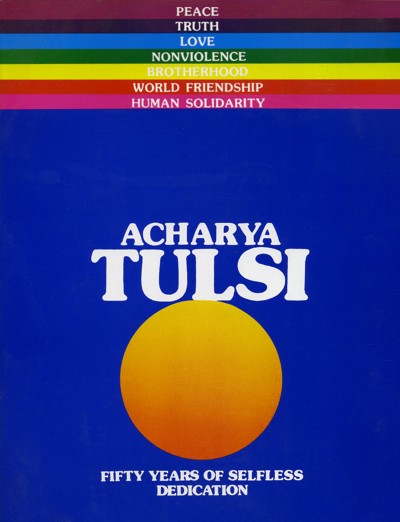Man has a lot to hide. That is why the voice of friendship is so feeble. There can be no suspicion when everything and everyone is open. Any attempt at a cover-up creates suspicion and in a climate of suspicion there can be only a working relationship and no friendship. Unfriendliness and perturbation on the one hand and friendship and peace on the other are too closely related to be viewed separately.
It is human desires which necessitate a cover-up. In order to satisfy his desire man makes an effort to harm the interests of others. How can he make it public? He tries to hide it. This leads to increasing suspicion and unfriendliness. The phalanx of desire, hiding, suspicion, and unfriendliness for the people is almost impenetrable. This incapacity of theirs gives rise to the armaments race, which in its present uncontrolled form has created a peculiar climate in which no country finds itself safe. Some people might think that the defence potentiality of the nations has become very strong now, but in reality humanity never faced greater insecurity before than it does now. I consider the problem of security and insecurity to be secondary. In my view duty is primary Man, being a rational animal, should first ask himself, 'What is my duty - creating human solidarity and unity or disunity and division?’
Can humanity's future be safe in the face of such disunity and division? Can acts calculated to jeopardize the future of mankind qualify to be called one's duty?
To work for and institutionalize the unity of mankind can alone constitute one's duty. Equality will be its chief inspiration. Human unity cannot be obliterated by the differences of caste, colour, language and nationality. It is individual desire and ego that relegate it to an insignificant position. There is a limit within which the desire for prosperity and respectability can be justified. But in trying to endanger the existence of others it violates the universally accepted norms of justifiable action.
Individual desire and ego are perennial human traits. Whenever they have been conjoined with power there has been a general increase in war hysteria leading to the repetition of bloody and violent events in history. The reason why moral values have been held in the highest esteem is that they transform this evil combination of desire, ego and power into courteous humility. The history of the human race has been far more honourable and full of freedom during periods of such transformations. Among the moral values I am referring to, the most important is self-control, i.e. the power to restrain one's instincts. The solgan of Anuvrat is sanyamah khalu jeevanam. Life is nothing but self-control; it is difficult to believe this though. But a slightly deeper analysis will reveal that all those who kill others or themselves lack self-control. All those who live and let live have self-control. Society has far more need of self-control than of finance. It is a logically proved fact that the power and freedom of an individual as well as of an institution directly depend upon the amount of restraint each one of them can exercise. One might like to believe in material and economic power but it would be dangerous to believe exclusively in them. This must not be lost sight of. The direction of progress in the modern world lacks balance. The development of material power will never be irksome if it is accompanied by the development of the power of self-control. Any culture and civilization which is externally rich but internally hollow is bound to go utterly bankrupt one day.
The Anuvrat Movement offers the following five-point programme to fill the above internal hollowness:
- Right philosophy
- Right determination
- Right conduct
- Efforts towards casting man in a new mould
- Scientific investigation of spirituality.
The dream of world peace is as complex as it is delectable. But we cannot overlook a problem merely because it is complex, for wisdom demands that we find a solution to every difficult riddle. The fact cannot be ignored that the fate of the politicians is finally in the hands of the people. Even though it is generally true that it is the former who ultimately decide war and peace, the awakened conscience of the people is bound to ensure one day that a handful of over-ambitious people are not allowed to play with the future of mankind.
To invite risks is one thing; to avoid doing something for fear of risks is another. Can one ever conceive of life without risks? In fact the bigger the task, the greater the risk. So why shirk action merely because it entails risks? - Acharya Tulsi |
 Acharya Tulsi
Acharya Tulsi
